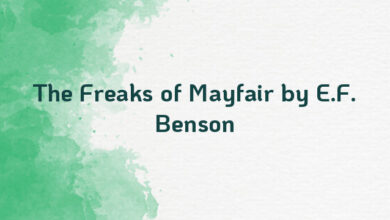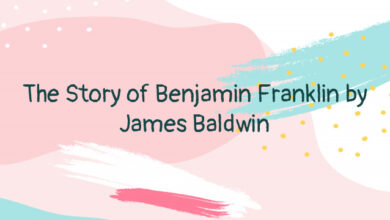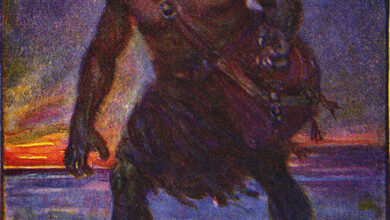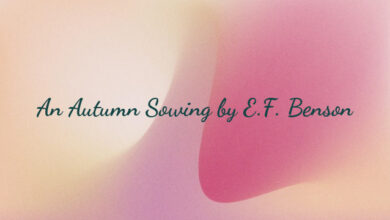
Kitty of the Roses by Ralph Henry Barbour
Chapter III
“Put it under the tree in the corner,” Burton directed, “and then bring me a chair.” “Mos’ pow’ful warm out hyar, sah,” remonstrated the negro. “Warm? Nonsense, Robert! Feel that breeze fresh from the river. Isn’t that cool enough?” “Ah ain’ feelin’ no breeze; an’ anyways it doan come from no river, sah; river’s over that a-ways.” “Robert, I fear you’re deficient in imagination,” answered Burton, shaking his head. “I insist that there is a breeze and that it is coming from the river. Geography mustn’t interfere with imagination; if it does, why, so much the worse for geography, Robert.” “Yessah.” Having set table and chair in place, Robert retired, only pausing at the side door long enough to throw a last dubious glance behind him. “He’s plum’ crazy,” he muttered with a shake of the head. Burton spread his papers over the table, looked to pens and pencils, lighted a cigarette, thrust his hands in his pockets, and, tilting backward in the kitchen chair, surveyed the scene contentedly. Above him the contorted branches of the Daphne-tree spread out and upward, making a leafy canopy through which the morning sunlight dripped in great, golden globules. Birds were singing happily in the garden and in the dense oaks that lined the wide street beyond. To his right was the old brick wall; before him ran the iron fence through which yellow and crimson and white climbing roses thrust their cool green leaves and dew-sprinkled blossoms. Beyond was the Enchanted Garden. Straight before him ran a narrow, red-gravel walk, box-walled and flower-draped, to the back door of the Castle. Burton smiled; he was highly pleased with his generalship. Yesterday’s position was commanding, but to-day’s was impregnable! He took up a sketch-book and idly turned its leaves, scanning the bold pencil-strokes that reproduced pillar and pediment, cornice and gable, with appreciative eyes. Yet he was not so much absorbed but that he heard the sound of an opening door. Keeping his head bent over his book, he looked towards the Castle. On the steps stood the girl. She wore the same white muslin gown with the lavender ribbon and carried the same basket. And, as yesterday, she stood, lithe and graceful, on the top step and surveyed the riot of color before her. Yet, ere she stepped down to the gravel, she raised her eyes in a fleeting glance towards a certain window in the other house. Burton chuckled. “Ah, Kitty,” he murmured, “you’re only human, after all!” She took the farther path, a choice he applauded silently, since she would not discover him until she turned at the bottom of the garden, when flight with dignity would be out of the question. Now and then he caught fleeting glimpses of her hat above the bushes as she moved along and heard the clipping of the scissors. As she neared the corner he dipped pen in ink and wrote industriously: “Belle Harbour, Virginia, June 3. “She’s coming; she’s almost in sight. I don’t quite know what I am writing. The situation grows intense. Will she retreat or advance? I can see the white of her gown through the leaves. She is almost at the corner of the path. My courage is ebbing fast; if she delays much longer, I shall beat a disordered retreat myself. Now! She’s coming, coming, coming—she’s here….” The girl came around the corner. She was humming softly to herself and swinging her basket. Burton’s head was bent over the table. She stopped and added a cluster of damask roses to her store. When she raised her head her eyes sought the window that had harbored the foe the previous day; it was empty. Undoubtedly she was vastly relieved, even if her countenance didn’t express it. Alas! little did she think that the enemy was entrenched almost beside her. Unsuspectingly, carelessly, still humming her little air, she drew nearer and nearer to his position. Suddenly the humming ceased abruptly. Burton’s heart gave a leap and he brought his artillery into action. He raised his eyes calmly—they belied the tumult in his breast—and gazed with polite surprise into hers. She returned his look with one expressive of amaze and—yes—appreciation; ere she turned her head away and bent over a bush the ghost of a smile, a roguish and demure smile, crept around her mouth. Then the abominable hat hid her. Burton was grateful for the respite; his forces were becoming disorganized. He took a long breath and— “… She scorns retreat! Despite the superiority of my position I cannot congratulate myself upon having had the advantage in the first skirmish. At present we are both out of action. Had I the courage I would ask for a parley, but alas! I am already wavering along my entire line; I can only put up a brave front and rely upon awing her. She is delicious, simply delicious. Her eyes….” Ah! what heroism! What impudent daring! What magnificent bravery! The girl came to the fence just in front of the table—not six yards distant!—and calmly snipped two bunches of pink roses with the coolest, most composed, and most unconscious air in the world! She even hummed a little! Burton stared most impolitely and strove to think of something to say. “Good-morning” sounded so idiotic, so puerile! “How do you do?” was out of the question! To ask for a rose would have been absolutely impertinent! The psychological moment passed; the girl turned away! Burton sighed regretfully and blamed his faint-heartedness. Up the centre path she went, stooping here and there, humming more assuredly now—a sweet, dainty, charming figure. He leaned his chin in his palm and gazed his fill. The basket was so laden that the blossoms spilled upon the path, but still she gathered more. Burton smiled appreciatingly. “Yes, yes, I understand, my dear,” he muttered beneath his breath. “In the best of order; horse, foot, and artillery intact; such a retirement is a victory!” At the foot of the steps she paused and deliberately gazed about her over the wealth of leaf and bud and blossom. But she did not bestow a glance upon the discomfited enemy. Then, gathering her skirts daintily about her, she tripped up the steps and entered the house. With the closing of the door Burton sighed again. He lighted a fresh cigarette and with a whimsical smile read what he had written. Then he again dipped pen in ink and wrote: “… It is all over! I have met the enemy and I am hers! I have retained my position, but at what a cost! I have lost my heart and my self-possession; my self-esteem is sorely wounded. And, alas, I glory in defeat! My only regret is that in her clemency she has refrained from taking me prisoner. Ah, Kitty of the Roses, come back and make your victory complete!” He tossed aside the pen, placed his hands behind his head, and blew smoke-rings up into the branches. A little wind crept in gustily from the street and fluttered the papers on the table. Burton took his cigarette from his mouth and pursed his lips. “How did it go?” he muttered, striving to recall and re-render the air that the girl had been humming. But his memory failed him and he gave up the attempt. A stronger breeze caught up the paper upon which he had written and blew it to the grass beside the fence. He watched it lazily as it turned over and over until caught by the iron pickets. Presently, he told himself, he would rescue it. Then his gaze, travelling beyond, caught sight of a cluster of scarlet roses lying upon the path just inside the fence. He glanced rapidly, stealthily, towards the Castle. There was no one in sight. His roaming eyes fell upon his cane. The next moment he had seized it and was thrusting it between the pickets of the fence, squatting most ungracefully with the mid-morning sun beating remorselessly down upon his back. The cane was long enough for his purpose and its crooked handle seemed fashioned for just such an emergency. But the low branches of a rose-bush were between him and the prize, and every time he tried to drag the latter towards the fence they interposed and foiled him. The leaves of the Daphne-tree rustled in the gathering breeze and murmured “Thief! Thief!” At his side a sheet of paper escaped from the pickets and, all unseen, bounded merrily into the Enchanted Garden. Burton’s face grew redder and redder and the sun seemed resolved on burning his back through the light shirt. The perspiration gathered on his forehead and slipped down his straight, long nose in little drops that tickled excruciatingly. Again and again the cluster of roses was almost within reach of his outstretched brown hand, and again and again the faithful branches whipped it back. Burton paused, wiped the drops from his face, viewed the somewhat bedraggled bunch of flowers exasperatedly, and summed up the situation mildly and satisfactorily in a clearly enunciated and temper-relieving “Damn!” Then he poked the cane again through the pickets and past the branches. And then,— “Perhaps I can help you?” said a voice almost overhead. He looked up into the amused brown eyes of the girl.
Chapter IV
The person whose self-possession fails him miserably at ordinary junctures may rise superior at a soul-disturbing crisis. Burton, red-faced, perspiring, conscious of the sorry figure he presented, arose from his hands and knees with brilliant composure. A glistening drop was tickling the side of his nose, yet he inclined his head politely towards the pickets; innumerable other drops were creeping disturbingly down the middle of his back, yet he smiled almost blandly.
“Thank you, if you will be so kind,” he said, and held forth his hand.
She bent gracefully and picked up the spray. Then,—
“I fear they are rather wilted,” she said with polite regret. “There are fresher ones on your side of the fence, are there not?”
Her accent was delicious, Burton thought; soft, creamy,—like her cheeks,—filled with odd little drawls and slurs. He hoped she would go on. But she didn’t; she only paused and looked questioningly from the withered spray of roses to his face. Her expression was merely one of courteous indifference, of polite interest tinctured with reserve; yet in the farther depths of her brown eyes a little imp of mischief danced into sight and out again.
“The roses on my side are charmingly fresh,” responded Burton, “but the fact is I have a desire for that especial spray.”
“Perhaps because stolen fruit is sweetest?” she asked maliciously.
“Not altogether for that reason,” he smiled. “There are certain associations connected with it that endear it.”
“Indeed?” She held it gingerly by the extreme tip of the stem and reached towards the fence. He accepted it gravely and thanked her.
“Please don’t,” she said; “I’m not sure that I am not compounding a felony.”
“I’m convinced that you are needlessly alarmed,” he answered. “You have only presented me with what was yours to give.”
But she shook her head. “Oh, no, not at all! I discovered you stealing”—this with awful emphasis—“my roses, and I came to your aid merely because I feared that if I did not you would have a sunstroke.”
“Stealing is an unpleasant word,” he said tentatively. “Couldn’t you substitute borrowing?”
“Borrowing?” The brown eyes opened very wide. “But I don’t believe it would be true.”
“I give you my word,” he answered earnestly, “that I will return these to you as soon as I am done with them.”
She leaned forward and plucked a withered leaf from a bush to hide the smile that trembled about her lips.
“Have you—have you any idea when that will be?” she asked.
“Indeed, yes, I can tell you to a minute!”
“Can you?”
“You shall have them back the very instant you give me some fresh ones.”
“Oh!” She was still hunting for withered leaves. “Are you going to press them, then?”
Burton acknowledged the touché with a smile.
“I had entertained hopes that you, with such a fabulous wealth of blossoms, would be charitable to one who has none,” he replied gravely.
“Charity is only for the deserving.” She gave up her search and faced him again. “Thieves are not worthy subjects.”
“But a little charity might have the effect of reforming them. For example, if you were to present me each morning with a rose, there would remain no necessity for stealing.”
She shook her head again. “Reform should come through repentance; that would be merely bribery.”
“But in extreme cases,” he pleaded, “shouldn’t we consider the end rather than the means? Now, with such a hardened, desperate criminal as myself——”
“Perhaps you are right,” she acknowledged. “And so you have permission to help yourself to a cluster of roses every day. You can reach them, you see, without trouble.”
“Oh!” he said disappointedly. “But I shouldn’t want to do that; I fear I would damage the bushes.”
“Not if you used scissors.”
He made a pretence of searching his pockets.
“I’m afraid I haven’t such a thing,” he said despondently.
“I’m sure Mrs. Phillips will lend you a pair.”
“You are taking an entirely wrong course with me,” he said sadly. “I feel that I shall never reform without some assistance; I haven’t enough moral courage. Now, if you would take a little interest in my case—to the extent of one rose, just a single, solitary rose now and then, you know—I’m sure I could lead a better life. Don’t you think that—er—you could?”
A sheet of paper danced out to the path at her feet and she stooped and picked it up, crumpling it in her hand.
“I’m afraid not,” she said.
She dropped the crumpled paper into her basket and moved off up the path. Then she paused and turned.
“Good-morning.” She gave a polite little inclination of her head and Burton removed his hat.
“Good-morning,” he answered dejectedly.
She went on towards the house, humming softly. He watched until the door had closed behind her; then he threw himself in his chair again and looked smilingly at the faded, bedraggled cluster of tiny crimson roses in his hand.
“She’s wonderful,” he said under his breath. “She’s a real Princess, after all, a little five-foot-two Princess, with the most beautiful eyes in the world and the dearest red lips and the pearliest, softest cheeks ever woman had! She’s older than I thought; she must be twenty-one or two. I wonder—but, no, she’s not married; she’s just a girl—a sweet, womanly girl.”
He placed a cigarette between his lips but forgot to light it.
“Kitty,” he murmured, “Kitty, Kitty of the Roses! Never was there a name that fitted as that does; she could have had no other name! Maud—Alice—Mary—Lilian—Florence—none would have suited her; Kitty was made for her! It never struck me before as being a beautiful name—Kitty. I wonder why? It’s absolutely musical! It’s a poem, a love-song! It’s——”
He sat up very straight and scowled at the littered table.
“Great Scott! this won’t do! These Enchanted Gardens are dangerous places; they evidently affect the brain.”
He rescued his pen from the grass and dipped it into the ink.
“Or maybe the heart!”
He drew his sheets before him and smoothed and arranged them. Then he frowned intently. Presently he began to write:
“The crowning of these columns with the Roman Doric abacus is quite unjustifiable and altogether incongruous to the purist. Yet the effect in the eye of the layman is not unpleasing. It is difficult if not impossible to account——”
He looked up from the sheet before him with exultant eyes, the pen poised motionless in mid-air.
“I’ll swear there were dimples when she smiled!” he murmured joyously.




